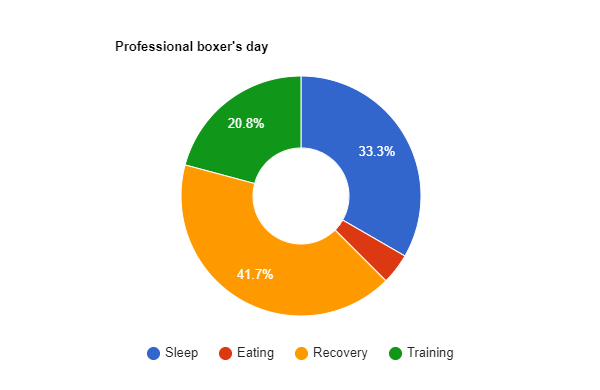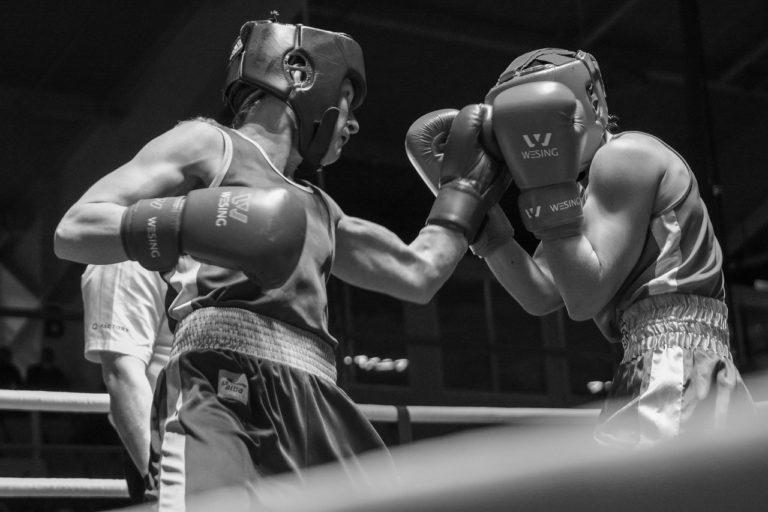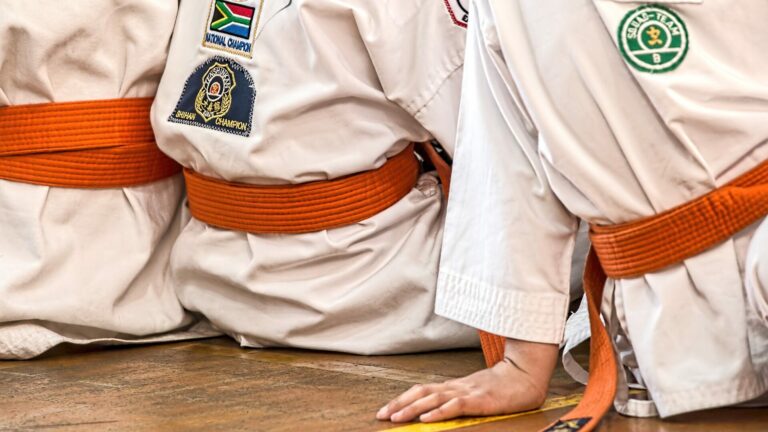How many hours do boxers train?

The amount of time each fighter spends in the gym is specific to them as individuals. Young, hungry fighters often spend their lives in the gym, pushing themselves to their absolute limits. While older veterans of the sport take more rest days and allow their bodies to recover during the final stages of their careers. But during training camp, boxers will be typically training for around 3-5 hours per day, 6 days a week.
Hours aren’t all that relevant providing that you’re putting in the work at the gym. On some days fighters will have hard sparring for an hour and spend the rest of the day recovering. Finding the right balance of training and rest is imperative for professional boxers. But generally speaking, you’ll find that most elite professionals will spend around 3-5 hours of their day dedicated to training. This could be either boxing training, conditioning, running, or sparring.
Professional boxing training hours
Below is an example of a typical week for a boxer in training camp. This is intense rigorous training which usually lasts for around 6-8 weeks in preparation for a fight. During the rest of the time, boxers will follow a similar regiment but in smaller quantities with less attention towards things like nutrition and weight, etc.
- Monday (5 Hours)
- Tuesday (5 Hours)
- Wednesday (5 Hours)
- Thursday (5 Hours)
- Friday (5 Hours)
- Saturday (5 Hours)
- Sunday (0 Hours – Recovery)
This kind of preparation is required before a fight to get boxers in peak physical condition. The objective of a training camp is to ensure that the best possible version of a fighter enters the ring when the fight occurs. Their training includes but isn’t limited to:
- Sparring
- Pad-work
- Bag-work
- Drills
- Conditioning
- Swimming
- Running
- Weight lifting
- Bodyweight excersies
To contextualize just how much of their time boxers dedicate to training, find below a pie chart showing how their time throughout the day is split. Astonishingly, training takes up just over 20 percent of their entire 24 hours. Ensuring they have sufficient sleep and nutrition is equally as important and combined they take up 9 hours of a fighter’s day. As for the rest of the time, most fighters will spend it recovering from training sessions with physiotherapy, watching boxing footage, or simply relaxing.

Professional boxing session breakdown
Despite them spending so much time in the gym, the hours that boxers train actually isn’t the most impressive thing about their training regime. It’s the relentless pace they work at. During a boxing bout, you don’t know what pace you’ll have to work at until you start fighting. Sometimes you’ll have to play a slow technical chess match where you can reserve your energy, in other cases you might have to explode and brawl for certain parts of the fight. The point is that boxing matches aren’t linear in their work output, sometimes you’ll be doing very little physically and then you’ll have to exert all your energy into one moment, or vise-versa. Hence why professional boxers need to train for all possible scenarios they could encounter while in the ring.
A typical professional boxing training session will leave most people shattered. It is designed to push your body to its absolute limits and put you in the best possible condition for fighting. Below is an example of what a training regime may look like:
Of course with there would be plenty of breaks in between such a schedule and during some of the exercises but the work rate would still be incredibly high. Also, this is quite a generic schedule, some fighters will have lots of other training methods incorporated into their camp.
| Training Method | Time Spent |
|---|---|
| Running/Roadwork – Running is one of the oldest and most effective training methods in boxing. Regardless of what level you’re at, you have to run. Cardio is such a vital aspect of boxing so running is always welcomed in nearly every training camp. | 45 minutes |
| Shadowboxing – Shadowboxing is another incredibly old yet effective training method for warming up. It allows you to practice technique while improving your speed and just allowing your body to loosen up for a hard day of training. | 15 minutes |
| Jumprope – Many boxers also use jump rope to warm up, its good for cardio, increasing agility, timing, and footwork. Jumping rope keeps you light on your feet which is an invaluable skill to have in the ring. | 15 minutes |
| Bodyweight circuits – Strength and conditioning play such a vital element in boxing training. Push-ups, sit-ups, and pull-ups are commonly used as they are bodyweight-oriented exercises that work a wide variety of muscles. The goal for this kind of training isn’t to gain muscle but rather to make you very strong overall so that if you need to dig deep or take a hard punch, your body will be able to keep pushing forward. | 1 hour |
| Pad work – Padwork is all about improving accuracy and putting together combinations. It allows you to work on speed and power but the main objective of pad work is getting your accuracy sharp. | 45 minutes |
| Bag work – This time would be split up across speed bags, heavy bags, and double-ended bags which all have different purposes. Heavy bags are for practicing power punches, combinations, and improving condition. Speed bags are for improving rhythm and speed. While double-ended bags are predominantly used for improving timing and accuracy. | 1 hour 15 minutes |
| Sparring – Sparring is arguably the most important element of boxing training. It allows you to put what you’ve learned into practice. Sparring is split up into rounds, just like a real boxing match. The number and length of the rounds will vary and there will be different goals is sparring depending on what and who you’re preparing for. | 45 minutes |
How many hours should I train?
The amount of hours you should train is completely up to you! However, for someone who’s getting into boxing and wants a routine that will push them physically, then an hour will probably be sufficient. You can get a surprising amount of training done within an hour and for beginners that is more than enough time for a good session.
The quality of training is much more important than the quantity. Its easy to train for several hours if your having a break every 15 minutes and work at a slow, lethargic pace. However, if you train with intensity, then an hour should be enough for just about everyone to break a sweat.
Why do boxers train so much?
Professional boxers will train for several hours a day because they are in training camp, preparing for a fight that will potentially impact their career. However, we shouldn’t try and emulate their schedules because they are preparing for a fight and we’re not. That kind of training usually only lasts a few weeks and its designed to get boxers in peak physical condition. For people who casually box, training for 5 hours daily is complete overkill.
Conclusion
Elite professional boxers will train for several hours a day when they are in training camp because they are training for a fight that could impact their career. However, that level of training isn’t sustainable, even for professionals. Throughout the rest of the year, they will probably only train for a couple of hours a day.
Regardless, the time spent in the gym isn’t all that relevant. Its about how much you’ve got done. Whoever has trained harder and been more effective with their time in the gym will likely be the one who is successful during the fight.






